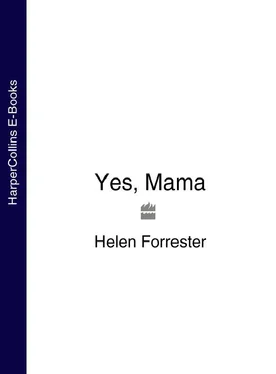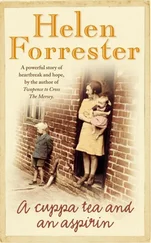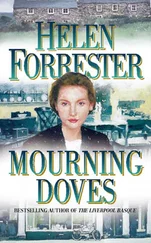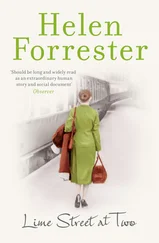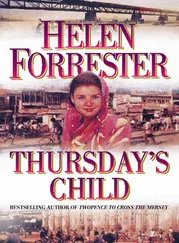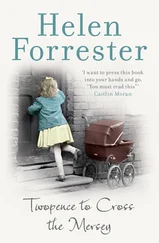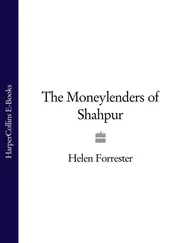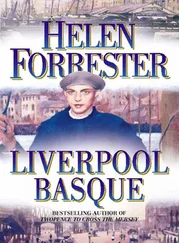‘Wot you goin’ to do when our Allie goes to school?’ Fanny asked Polly, as, one night, she snatched a moment in the nursery to rest her aching feet. She had asked a similar question when, at eighteen months of age, Alicia had finally been weaned.
At that time, Polly had been very troubled. The under-gardener in the park, of whom she had had hopes, had failed to appear during two successive walks. According to a surly park-keeper, he had been dismissed for impudence. Polly’s dream of presiding over a tied cottage with a small pigsty vanished with him. A brief encounter with a regular soldier, also met in the park, had come to an abrupt end when his regiment was sent to India. Statistics were against Polly’s ever marrying again; the district had far more women than it had men.
The longer Polly continued to live in the comfort of the nursery attic, the less she wanted to return to the teeming slum in which she had been raised. A high standard of living, she found, was very easy to get used to. She had been thankful when Elizabeth had used her, in part, to replace Maisie.
Fanny was now a small, pinched seventeen-year-old and had replaced Rosie as a housemaid. Rosie had married the milkman as soon as he was satisfied that she was pregnant; a working man had to be certain that his wife could have children to maintain him in his old age.
A tweenie was no longer employed to care for fires, empty slops and carry water. Instead, Humphrey ordered Elizabeth to employ a charwoman, who came early in the morning to clean out the fireplaces and remake the fires. She also filled all the coal scuttles. To cut down on the carrying of water, more use was made of the bathroom taps, though the servants were still not allowed to wash themselves or use the lavatory in the bathroom. Elizabeth ended a custom of centuries, abandoned the chamber-pot under her bed and trailed along to the bathroom; she felt it was a real hardship.
Safe in the nursery with Polly, for many years Alicia understood little of the bitterness which lay between her mother and Humphrey Woodman. She learned early, however, from Polly that Papa was to be feared and that she should keep out of his way. As soon as the child could talk Polly taught her that the pretty lady who lived downstairs was to be obeyed without question, no matter how unhappy her decisions made little girls and nannies. Nannies said, ‘Yes, Ma’am, of course, Ma’am.’ Little girls said, ‘Yes, Mama,’ she instructed.
Alicia’s first day at Miss Schreiber’s Preparatory School approached and Polly was again worried.
‘I suppose I’ll have to look for another place,’ she sighed to Fanny. ‘It’ll fairly kill me to leave little Allie – she’s my baby more’n anybody else’s.’ She glanced across to where Alicia was kneeling on a chair at the table. She was quarrelling with Florence’s elder son, Frank. They were playing Snakes and Ladders and she was protesting to the boy that he must slide down every snake on which his counter landed. He retorted that if he wanted to he could slide down only every other one. A fight threatened, and Polly got up to settle the squabble.
‘Now, you play nicely, Master Frank, or I’ll send you home.’
Frank looked at her mutinously, picked up the board and tipped the counters off it, then slid down from his chair to go to the rocking-horse. Still watching Polly, he climbed on to it and began to rock as hard as he could. ‘Cheat!’ shouted Alicia, and, aggrieved, went to sit on Polly’s lap.
‘You could wait at table.’ Fanny grinned wryly at Polly. ‘The Missus says I’m even worse’n Rosie was.’
‘I don’t know how neither.’
‘Ask the Missus to train you. You and her is as thick as thieves – she’ll jump at the idea. Now the Master is wantin’ to have more dinner parties, she’ll need a proper parlourmaid.’
‘’Ow d’you know he wants more people in?’
Fanny looked wise, ‘I ’ear it all.’
When Master Charles came home for the summer holidays, soon after Alicia’s fifth birthday, he found his old friend, Polly, waiting at table. For the first time, Alicia was allowed to have lunch with him and with his mother in the dining-room. He noticed, uneasily, that Elizabeth was most impatient with the little girl, as the child floundered over the various knives and forks. He teased her gently that she would soon be a grown-up young lady and the threatening tears turned to a shy giggle.
‘I’m going to school soon,’ she confided proudly, and wondered if she dare ask for another spoonful of strawberry jelly. She looked up at Polly, hovering over her mother, water-jug in hand, and decided not to. She had long since joined the silent conspiracy of servants in the kitchen; she knew that after the meal she could go down to the basement to ask Mrs Tibbs for a bit more and would be given it gladly.
After this first venture at lunch in the dining-room, she asked Polly, ‘Why are you dressed up differently in the dining-room?’
‘’Cos as well as lookin’ after you, you cheeky little bugger, I got to be the parlourmaid in a parlourmaid’s uniform.’
Miss Schreiber, at the preparatory school, was horrified when, one morning in September, Alicia called a teasing boy a cheeky little bugger. For the first time in her life, the child received a sound slap. She learned quickly that there was more than one English language.
Alicia tended to be secretive and very quiet when in her mother’s company. Miss Schreiber’s complaint forced Elizabeth to pay more attention to her daughter’s language, and this made Alicia more than usually tongue-tied. Only in the kitchen, where she was treated with easy affection, was she able to express herself freely.
She also tended to be struck dumb in her sister’s home, where she was taken by her mother to play with her nephew, Frank. Frank now had a small brother and a baby sister.
‘They’re no good to play with yet,’ he told her, in reference to his siblings. ‘He wets his trousers and she only sleeps – do you know, she hasn’t got any teeth?’
The latter interesting fact stirred Alicia out of her usual wordlessness. ‘Perhaps she’s lost them,’ she suggested. ‘Aunt Clara lost hers once – we found them in her dressing-table drawer.’
For months after that, Frank checked his teeth from time to time, to make sure that they were still firmly fixed in his mouth.
Alicia was always thankful, after these visits, to be returned to the safety of the kitchen in Upper Canning Street; Frank tended to push her about and she did not enjoy it.
Several times in her life Alicia was visited in her nursery by a man so tall that it seemed to her that his head would touch the ceiling. He was very thin and stood awkwardly in the open doorway of the nursery, until he was invited in by Polly, who curtsied to him.
He was dressed in tweeds which smelled of tobacco smoke and his black hair was cropped close to his head. He always went to stand with his back to the fire and then he would survey the room and say, in a deep friendly voice, ‘This is the only place in the world which never changes – and old Toby is still there!’ He would move over to pat the head of the rocking-horse, which Alicia loved to ride.
At first, Alicia tended to shrink behind Polly’s skirts; her knowledge of men was limited to Humphrey, who had never been known to enter the nursery, and the Reverend Clarence, who never spoke to her. Polly hauled her out, however, and said, ‘Come on, now. You know your big brother, Master Edward. He’s come all the way from India to see yez. Come and say how-do-you-do.’
With the offer of an ivory elephant, just the right size to hold in her hand, she was beguiled on to his knee while he talked to Polly. Polly made up a story about her furrie elephant; it was some time before Alicia realized that she meant a fairy elephant and not a fur-clad mammoth such as she had seen in a picture in one of Charles’s old books.
Читать дальше
